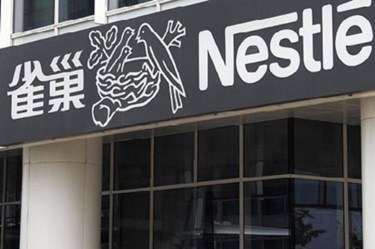Nestlé Opens Food Safety Institute In China
By Karla Paris

The world's largest food company has opened a food safety research centre in Beijing aimed at supporting Chinese authorities as they strengthen food safety policies and standards
Coming on the heels of Nestlé’s recent sustainability efforts where it has been working hard to reduce water consumption, packaging material, and GHG emissions, Nestle announced the opening of its Food Safety Institute in Beijing on Tuesday, March 25.
The Nestlé Food Safety Institute (NFSI) will work closely with authorities to help provide the scientific foundation for food safety policies and standards. The NFSI is located in Nestlé’s existing Research and Development Centre in Beijing, part of the company’s global network of 34 R&D and Product Technology Centers.
It will also be linked to Nestlé’s network of 25 Quality Assurance Centers, the final stage of a food safety assurance system that begins when raw materials arrive in the factories and continues throughout the production process. Nestlé has the world’s largest private food and nutrition research organization, with about 5,000 people involved in R&D, as well as numerous research partnerships with business partners and universities. Nestlé says the new operation will provide early management of food safety issues and collaboration with local universities, research institutes and government agencies, while also helping to run food safety training programs.
Is your company prepared to meet FSMA requirements?
“The inauguration underlines Nestlé’s commitment to food safety and is also another important highlight in the story of Nestlé’s successful and long-standing presence in China,” says the company’s Chief Technology Officer Stefan Catsicas. “I am in no doubt that the work of the Nestlé Food Safety Institute will contribute to creating shared value for Nestlé shareholders and for society in China,” he adds.
Food safety and consumer trust are key priorities for Nestlé. The new Food Safety Institute will help meet China’s growing demand for healthy and safe food, one of the top concerns among Chinese consumers.
